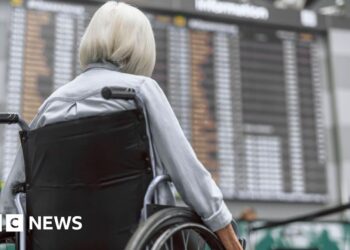
- Researchers report that a three-year exercise program helped improve survival rates for people who have been treated for colon cancer.
- Experts say the findings could be helpful when doctors are recommending exercise as part of a post-cancer regimen.
- They note that the research may be particularly useful in patients who are under 50 years old, an age group that has seen a rise in colon cancer incidences.
Exercise can help people who’ve been treated for colon cancer improve their long-term chances of survival.
That’s the conclusion of a new study presented at the 2025 Annual Meeting of the American Society of Clinical Oncology.
In their study, the researchers concluded that a three-year exercise program improved survival rates and kept the disease at bay among colon cancer patients.
They recommended that cancer centers and insurance carriers consider making exercise coaching a new standard of care for people who’ve been treated for colon cancer.
Experts who weren’t involved in the study say this research is important.
“This is the most rigorous assessment to date of the role for regular exercise for colon cancer survivors. Prior to this, our data about the importance of exercise for colorectal cancer survivors was generated from pre-clinical models or observational studies,” said Katherine Van Loon, MD, a professor of clinical medicine in the Gastrointestinal Oncology Department at the University of California San Francisco, and director of the Global Cancer Program at the UCSF Helen Diller Family Comprehensive Cancer Center.
“It’s particularly exciting because exercise is low cost, low risk, and accessible to all patients, regardless of age, race, or socioeconomic status,” Van Loon told Healthline.
“The study is really well done and it produced meaningful results,” added Nilesh Vora, MD, a hematologist and medical oncologist as well as the medical director of the MemorialCare Todd Cancer Institute at Long Beach Medical Center.
“The disease-free survival aspect is really important,” he told Healthline.
For their study, the researchers followed 889 people with treatable colon cancer at 55 centers in Canada, Australia, the United Kingdom, France, Israel, and the United States.
The study period ran from 2009 to 2024, with a median follow-up of nearly eight years.
Half of the study participants were given information promoting fitness and nutrition. The other half worked with a fitness coach. They met every two weeks with the coach for a year and then monthly for the next two years.
The researchers reported that people with coaches were more active than those who were only given health education information.
They also noted that at the five-year follow-up mark, 80% of people in the exercise group were disease-free compared to 74% in the information group.
After eight years, overall survival in the exercise group was 90% compared to 83% in the information group.
Researchers collected blood samples from study participants to help determine why exercise might be a prevention for cancer. Some possibilities include improvements in insulin processing and bolstering the immune system.
“I can now clearly tell my patients who’ve been treated for colon cancer about the extreme importance of exercise,” said Vora. “This research is very valuable.”
“The indirect evidence from many different studies over several years supports that regular exercise is beneficial for improving overall survival as well as mitigating many symptoms and side effects of cancer and its related treatments,” Patel said.
It’s also the third leading cause of cancer-related death in males and the fourth leading cause in females in the United States.
Colon cancer is often curable if caught in its early stages. Treatments include surgery, radiation, chemotherapy, and immunotherapy.
Symptoms of colon cancer include:
- a change in bowel habits
- blood in the stool
- cramping or abdominal pain
- fatigue, weakness
- eating more plant-based foods
- eating less red and processed meat
- reducing alcohol consumption
- avoiding smoking
- managing weight
- exercising daily
Experts have been raising concerns in recent years over the increase in the rates of colon cancer in younger adults.
The
Colon cancer is now the
Experts have said the potential reasons for the increase include a lower-quality diet, increased obesity rates, and less physical activity.
The increase has prompted several organizations to change their recommendations on colon cancer screening, now suggesting that people begin regular screenings at age 45.
Some doctors will recommend regular screenings before age 45 if an individual has a family history of colon cancer or if they have a medical condition such as inflammatory bowel disease that can raise the risk of colon cancer.
Van Loon said the new study on exercise can be particularly useful for younger adults.
“Our survivor population is always asking ‘What else can I do?’ after completion of their usual cancer care,” she noted.
“In particular, our younger patients with colon cancer face disproportionate disruption in many aspects [of] their young-adult lives. A cancer diagnosis at a young age often causes a true inflection point, and many seek to pursue healthy living practices after a colon cancer diagnosis.”
Patel noted that effective strategies combined with treatment to increase survival rates after diagnoses are “critically important to decrease the burden of cancer and premature death.”
Van Loon added that early screening should also be a priority.
“Screening is the most important way to avoid a colon cancer diagnosis,” she said.
“Colonoscopies are a very effective way to prevent and detect colon cancer at an early stage. For patients who are unwilling to pursue a colonoscopy, other forms of colon cancer screening are available, including stool-based testing and CT colonography.”
Source link : https://www.healthline.com/health-news/exercise-improves-colon-cancer-survival-rates
Author :
Publish date : 2025-06-03 13:01:41
Copyright for syndicated content belongs to the linked Source.














